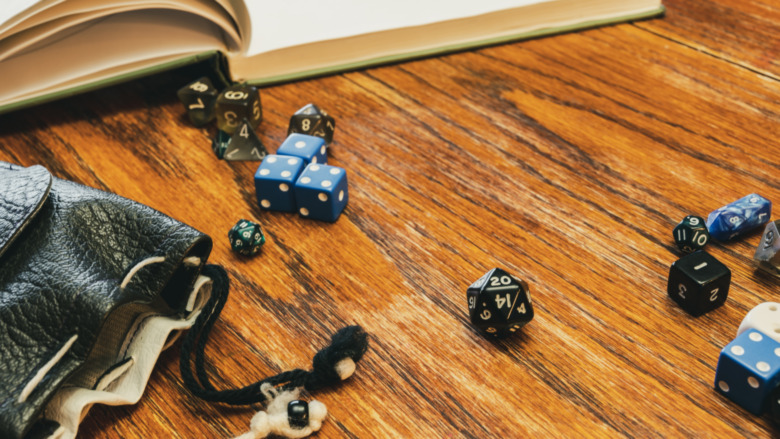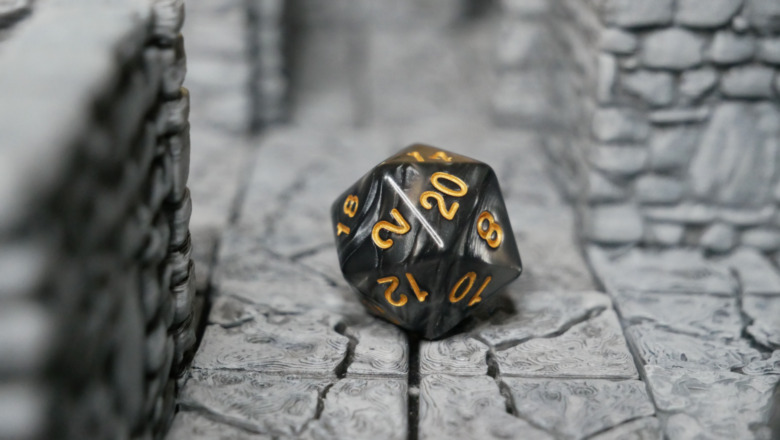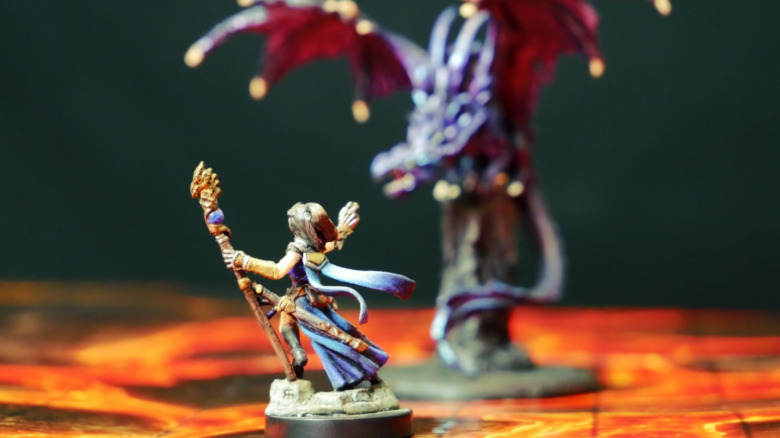What You Should Know About The Dungeons & Dragons Murderers
So you might be thinking that the "Dungeons & Dragons murderers" hacked the tentacles off a Beholder before plunging their Holy Avenger longswords into its single glowing eye. Or, you might be thinking it's the worst-cast scenario for a Saturday night of overly-serious players who got a bit too testy with their sleep-deprived Dungeon Master.
But no. The Dungeons & Dragons murderers — and murders — are neither of these options. Instead, they are part and parcel of the same tired, banal, eye-rolling set of reductionist criminal behavior-blaming that started way, way before the 1980's Satanic Panic, back in the heyday of Elvis' hip-shaking and "devil music."
There were more than 600 mass shootings in the U.S. in 2020, per The New York Times. That's 1.64 per day. Board game players aren't the issue. D&D players are too busy grousing over rules, debating lore, and finding it awesome to drink, eat pizza, and debate which player abilities to take at next level up. Shoo, shoo, bogeyman.
But Dungeons & Dragons is an easy target for the ignorant, uptight, and perpetually morally outraged. Along with politicians, D&D has been targeted by the FBI (per Polygon) and Christian fundamentalists like cartoonist Jack Chick (per Vox). The Dungeons & Dragons murderers, though? Classic logical fallacy.
Dungeons and Dragon's history of being blamed for crimes
To be specific, when we talk about the "Dungeons & Dragons murderers," we're referring to a specific crime that took place in 1988. Before that, Dungeons & Dragons had already been blamed for societal ills and woes, as The New York Times outlines, and every time it amounted to the following syllogism: "Kid does bad thing. Kid plays D&D. Kids who play D&D do bad things." In another Times article, from 2019, psychology professor Chris Ferguson cited similar issues related to video games and violent behavior, rather than tabletop games like D&D: "The data on bananas causing suicide is about as conclusive."
In 1980, six years after creator Gary Gygax first published Dungeons & Dragons, 16-year-old D&D gamer James Dallas Egbert III committed suicide. In 1982, gamer Irving Lee Pulling II committed suicide; his mother went on to form the anti-D&D group Bothered about Dungeons and Dragons (their pamphlet is viewable on The Escapist). In 1984, gamers Ronald G. Adcox and Darren Lee Molitor strangled a teenager, Mary C. Towney. In each of these cases, Dungeons & Dragons was blamed, via the aforementioned syllogism, and in each of these cases, a disservice was done to the lost lives of loved ones and the suffering of family members in order to pick an easy target.
Also note how adding the word "gamer" before each of the perpetrator's names colors the subsequent description. This is important, come 1988.
Money and family troubles were the cause
As History phrased it, on the July 25, 1988, "A Young Man Turns the Death of his Parents into a Game." The site proceeds to call said young man, Chris Pritchard, a "devotee of the Dungeons & Dragons role-playing game." In the context of the moral panic of the 1980s, these few word placements — "game," "devotee," the word "devotee" invoking comparisons to Satanic "invocations" — provide the public with the precise picture they needed to decide the cause of the "Dungeons & Dragons murderers."
And the actual cause? Chris, away at college smoking pot and doing poorly in class, was motivated by the need to "express his rage at his stepfather" and to get money from his stepfather's inheritance, which paid out to his mom, per The New York Times. He'd conscripted his friends to help him, and one of them confessed that he drove when Chris committed the attacks. Chris' stepfather, Lieth, and mother, Bonnie, had been "stabbed and clubbed." Lieth died, but Bonnie survived. So what was the connection to D&D, and why were these kids called the "Dungeon & Dragons murderers"? Chris played the game with his friends — that's it — and complained about his stepfather when they hung out.
As The News and Observer says, Pritchard pled guilty to reduce his sentence, and was paroled in 2007. His friend Henderson was paroled in 2000, and his other friend, Upchurch, will be eligible for parole in 2022.


